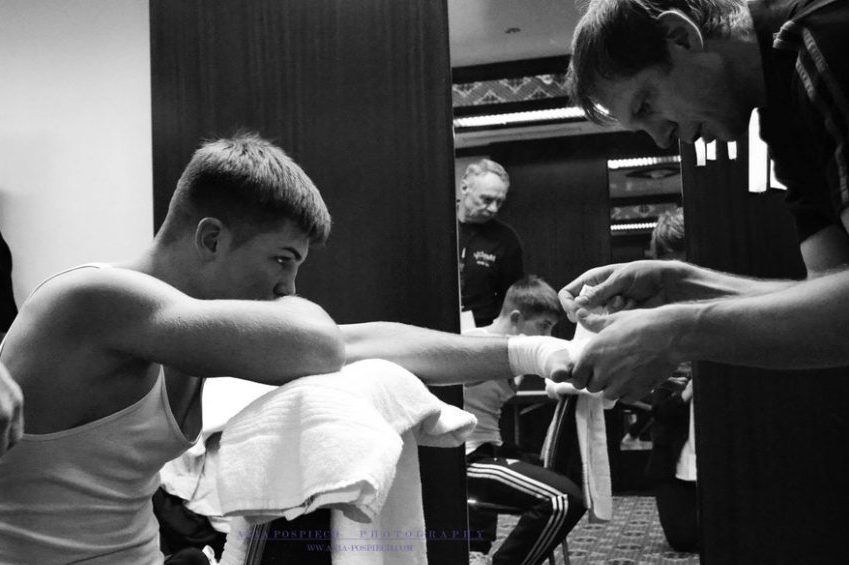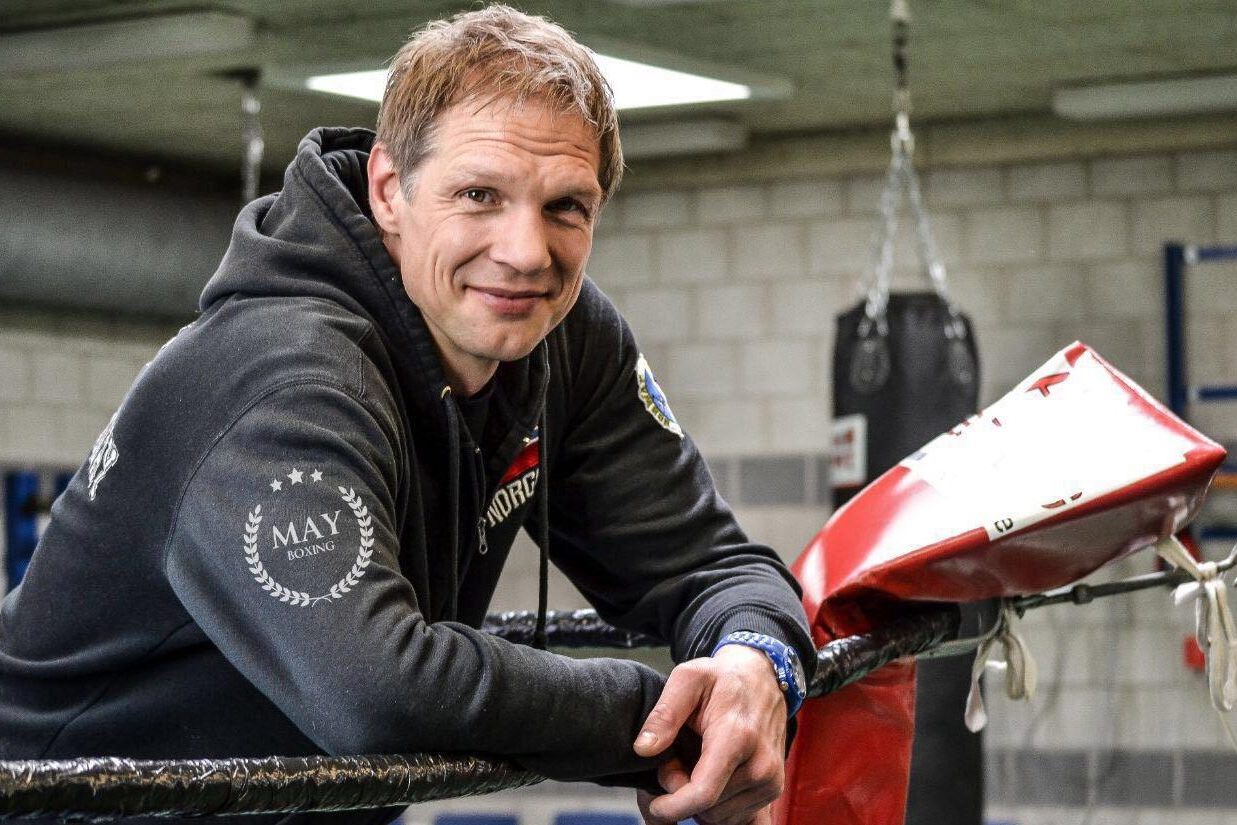“Can you please also address the issue of resilience?” a customer recently asked me. My task was to reflect on the results of a 360° feedback process with managers of a large corporation. The CEO attached particular importance to the issue of resilience. One of these topics that descended upon us shortly after ‘work-life balance’ and ‘mindfulness,’ and that I thought had been replaced by ‘purpose.’ But well, it always takes a little longer for large corporations to adopt a fashionable topic.
So resilience, why not? During my time at university I had learned that people show a high degree of resilience when they become valuable members of society despite growing up under adverse circumstances (e.g., with parents who were addicted to drugs or violent). At home in Bavaria we have a saying that translates to – “Good people can handle it, and the bad ones don’t matter anyway.” In other words – “It is not important how often you fall, but how often you get up again.”A boxer in victory pose would probably be the right image for a meme here.
Long working days – a “must” for German executives
“Let’s talk about the topic of resilience,” I added, as instructed, in all meetings after the respective manager and I had jointly reflected on the results of the feedback. Many of the managers had been working on a very demanding strategic project for months. I wanted to find out about their methods of working and their workload:
- “How many hours do you work?” – “50-60 hours a week are normal.”
- “When do you take a break?” – “Often there is no alternative but to sacrifice the lunch hour.”
- “How often do you exercise?” – “Twice a week! I set my alarm for half past five on those days.” (and sleep less as a result, editor’s note)
- “How often do you answer your work emails while on vacation?” – “About twice a week.”
- “When does it get too much for you?” – “I’ve had a breakdown before, but that’s a few years ago now.”
Long days in the office are still considered to be the norm for Generation X, which the managers of this company belong to. My counterparts seemed to be proud of their “resilience” rather than to perceive it as a problem.
Resilience = the admission that you are suffering
My mentor Matt Griggs, who coached surfer Mick Fanning, a three-time world champion, says the following about resilience – “Resilience is the admission that you are suffering. When companies are interested in resilience, they basically want to know how to teach a boxer to take punches more effectively. The best solution for this would be to get him a jaw made of steel.”
I wanted to know about my counterparts’ jaws of steel. Resilient enough?
So I asked them: “How are you?” – “Good.”
When my younger son, Leander, went to primary school, I asked the question that most mothers ask every day – “How was school?”
He always replied – “Good.” Eventually I became suspicious.
So I asked him – “Why do you always say ‘good’?”
Leander replied – “If I don’t say ‘good,’ you start asking questions!”
I have stopped asking every day. However, when I’m away on business, I use WhatsApp to ask him if everything is okay.By now, I get the answer – “Never been better!” “Everything’s perfect!” I understand that a sixteen year old has no desire to communicate with his mother. It’s all good!
How is the most important person in your life?
But the project was about self-reflection. So I asked some more questions:
“How are you really feeling? Take a few moments. Check how you feel on the inside. Take two or three deep breaths. Maybe with a feeling of ‘I did it.’ And then ask yourself, as if you REALLY want to find out the answer:”How are you feeling? How is the most important person in your life?'”
Now I received more substantial answers:
- “Excited. All the changes in this company have led me to fall in love with my employer again after all these years!”
- “Exhausted. It’s been intense in the last few months.”
- “I don’t feel anything. Somehow empty.”
- “Quite content.” A smile appears on my counterpart’s face.
- “Proud.”
- “Restless and harassed.”
- “Tired. Very, very tired.”
I love my job, just for these answers alone. Every week people sit in front of me and at first I have no idea what is going on in their heads. In the past, I used to think it was down to me if the people I was talking to were very quiet. Especially in seminars I then tried to activate them. It never occurred to me that they were simply tired.
Regeneration – mandatory rather than luxury if you are a professional athlete
Competitive sport has long understood that the regeneration phases are of particular importance for delivering top performance. They are therefore an integral part of an athlete’s training plan. In theory, the economy has also been aware of this for some time. However, we have great difficulty with the practical implementation. This is probably due to the fact that since the Industrial Revolution we have treated people as add-ons for machines. An employee is particularly good if he or she functions and integrates smoothly into the process. Too bad that we have these annoying bodies that sometimes refuse to cooperate.
I too am often more tired than I would like to admit. It’s hard to tell from the outside. My proven strategy for dealing with fatigue is coffee. I can’t function without a triple espresso early in the morning. One of my workshop participants recently commented that he often feels like a robot being refueled with coffee. Something we are all familiar with: carry on and don’t listen to your body? And aren’t we at least a little proud of our ability to take punches?
Since I know nothing about boxing, I asked one of my friends, the former German cruiserweight champion Rüdiger May. He has successfully been coaching, managing, and training boxing talents for many years. Rüdiger explained – “When you step into the boxing ring, you know it’s going to hurt. A good boxer, however, is someone who gets hit very little and at the same time lands many punches. To achieve this, you need to anticipate the next step. You are clear about the present situation and at the same time you are already initiating the next step through your actions.”
Forget resilience: learn to avoid punches
I am mainly interested in constructive cooperation. I don’t advocate punching each other in the nose. Nevertheless, we can learn a lot from professional boxers for our day-to-day work:
- Be aware of your current situation.
- Learn to avoid punches.
Rüdiger said that it was very relevant for a boxer to have a strategy or tactics. You prepare for every opponent. What are the opponent’s strengths and weaknesses? But as Mike Tyson said so beautifully – “Everybody has a plan until they get punched in the mouth.” Then it is necessary to integrate the opponent’s actions into your plan.
Your boss was upset because you were not able to provide information on a topic in your area? That happens when you work in a corporation. There are simply a lot of people working simultaneously on many complex matters. Did that hurt? I know. This pain is virtually pre-programmed. It is not possible to know exactly what the other person will want to know from you tomorrow. It doesn’t help if you check your inbox every other day during your vacation. It may be that the control freak in you believes otherwise. But he is wrong. You know why it’s not possible? Because sometimes the other person does not even know yet what he wants himself. Surprises happen. People are not machines. They have new ideas and change their mind. All the time. Always. It’s called life. Might make sense to adapt tactics and accept reality. Then it will feel less like a punch in the face.
You are not made of kryptonite and Super Lara doesn’t exist
To improve communication, another meeting has been implemented in your company, but youdo not know why you are to take part in this meeting. Also, for whatever reason, are you too tired to really listen? Then take a break. Why? Because you’re not made of kryptonite.
My ego sometimes tells me that I’m Super-Lara. Looks good! Can do everything! Top consultant! Gifted coach! The only problem is: Super-Lara doesn’t exist. The real Lara is very normal and sometimes even more tired than she will admit. I try to accept her for who she is. Because she is the only one who exists. And she loves her triple espresso.
The definition of insanity – executives knock themselves out
Einstein is believed to have said – Insanity is doing the same thing over and over again and expecting different results. It almost seems to me that many managers almost knock themselves out and do not even realize it.
Being hard on yourself is not particularly heroic or intelligent, nor is it a sign of good leadership qualities. No boxing champion ever had a jaw made of steel. Wouldn’t it be wiser to recognize and accept your own limits? This requires courage and an honest look at what is REALLY going on with yourself.
As a coach I therefore encourage my customers at the beginning of each appointment – “Take time to take a deep breath. How are you feeling? How is the most important person in your life? Ask as if you REALLY want to find out the answer. How are you feeling right now?” I’m always excited to hear what they reply. I will accept any answer, except ‘good.’ And then we can get to work.




